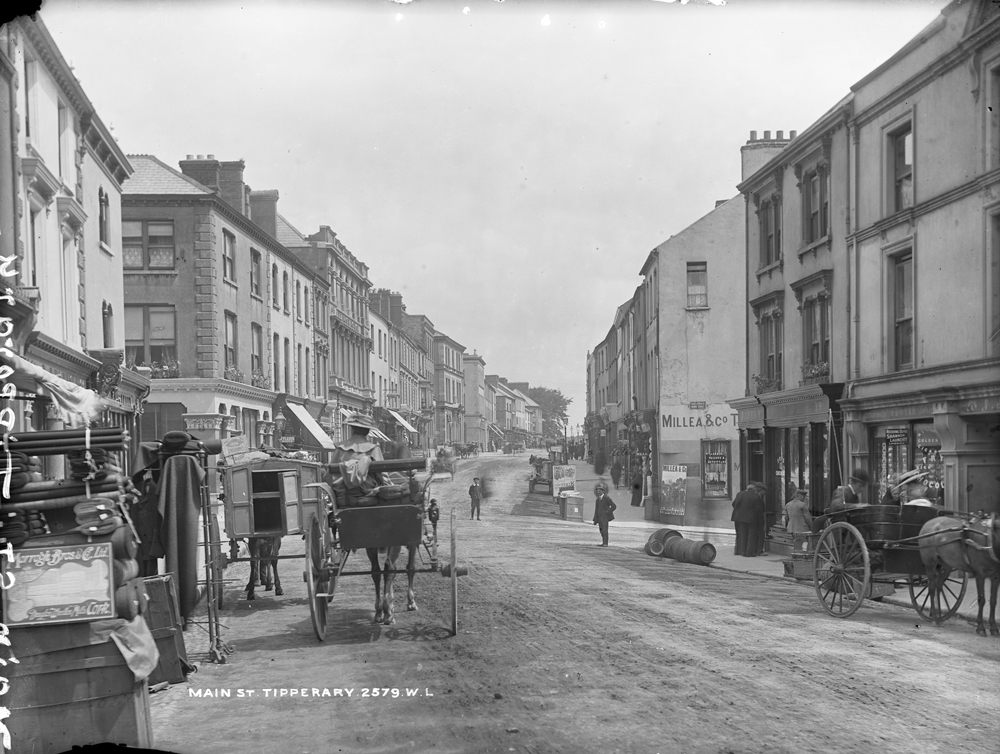Tipperary in chaos in the wake of Soloheadbeg murders
Three suspects released without charge
Tipperary, 3 February 1919 - Three men arrested in the wake of the shooting of two RIC constables in Soloheadbeg have been released.
The men have been named as Michael Ryan, a farmer from Greenane; his son Mathew Ryan; and Mathew Riordan who worked at the Ryans’ farm.
Explosives were found in a box on the Ryans’ land, two miles from where the incident took place. However, neither the box nor the gelignite were the same as that taken away in the cart near the Soloheadbeg quarry on the day of the attack. The Ryans have denied all knowledge of the box.
Clampdown in Tipperary
Since the Soloheadbeg incident, extra police from the RIC depot in
Dublin have been drafted into Tipperary but there is much local
unease at the restrictions that have been placed on business and
movement.
Clonmel Board of Guardians passed a resolution protesting the stoppage of fairs and markets believing the town and its inhabitants did not deserve to be punished for a crime committed 20 miles away.
It was unfair, their chairman added, that they should suffer for ‘an act of blackguardism by people whom they did not know’. All they knew, he said, was that ‘no Tipperary man ever did it’.
There was similar criticism of the authorities levelled at a meeting of the Tipperary Board of Guardians. William R. Russell, said that all abhorred murder, but it was a ‘sinister coincidence that it occurred in the critical days of the opening of the Peace Conference, when there was a danger of the Irish people approving of assassination and outrage.’
Writing to the Irish Times, a well-known Dublin solicitor, Sir William Fry, made a contribution to a relief fund for the family of the late Constable McDonnell, who, he asserted, had been ‘cruelly murdered while doing his duty’.
Another letter-writer to the same newspaper claimed that the Soloheadbeg was a ‘base and degrading crime’ that was ‘but one symptom of the moral disintegration of our nation’; it was, he argued, the ‘natural development of the brutalising and pagan creed that for the past three years has been proclaimed as ‘patriotism’ in Ireland, while those who should have refuted it have sat in cowardly silence’.
[Editor's note: This is an article from Century Ireland, a fortnightly online newspaper, written from the perspective of a journalist 100 years ago, based on news reports of the time.]





















